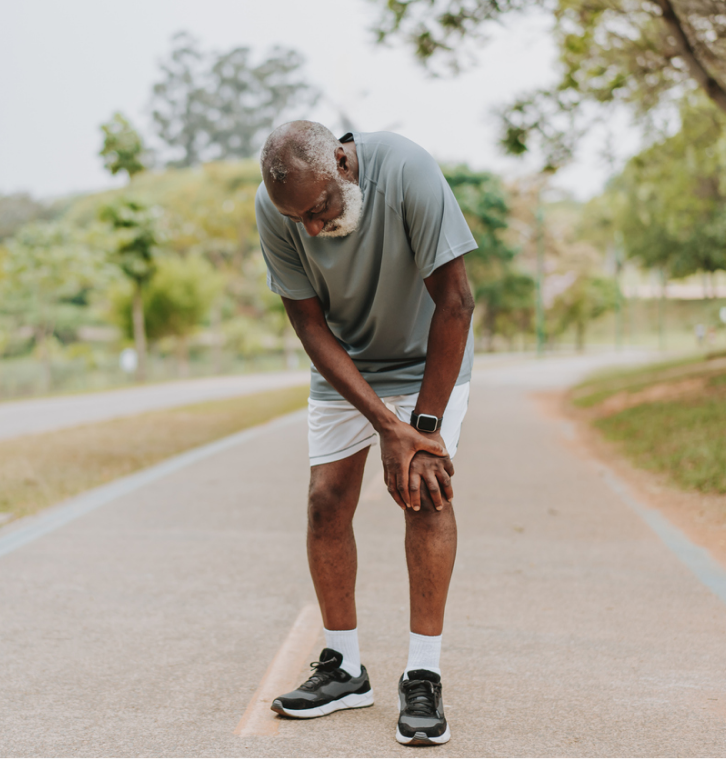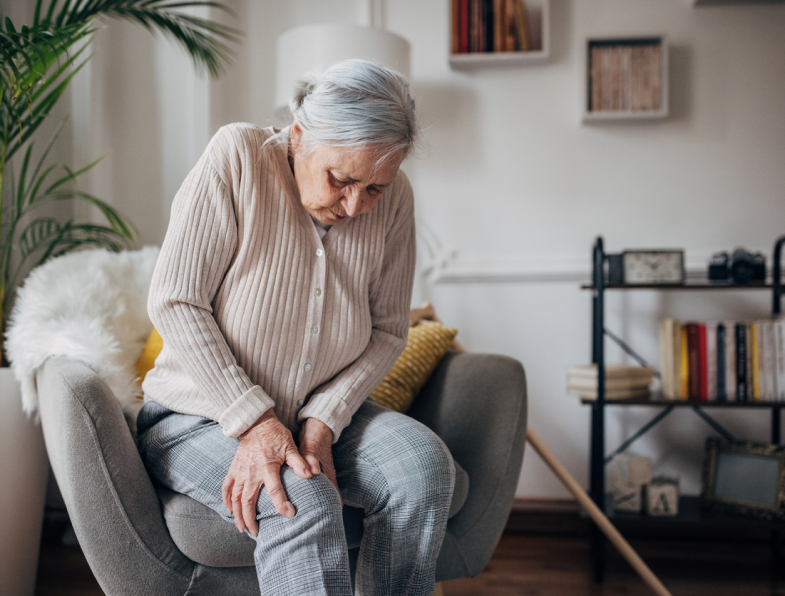
What is Knee Pain?
Knee pain refers to any discomfort, soreness, or ache in or around the knee joint. This complex joint, which connects the thigh bone (femur) to the shin bone (tibia), is crucial for movement and bears a significant portion of our body weight. Knee pain can be acute, resulting from a sudden injury, or chronic, developing over time due to wear and tear or underlying conditions.
While the traditional R.I.C.E. (Rest, Ice, Compression, Elevation) protocol has been widely used for treating acute knee injuries, recent research suggests that the M.E.A.T. (Movement, Exercise, Analgesics, Treatment) approach may be more beneficial. This newer method emphasizes gentle movement within pain tolerance, targeted exercises, natural pain relief, and early therapy. The M.E.A.T. protocol focuses on active care and early movement, potentially enhancing the healing process for soft tissue structures and promoting faster recovery.

